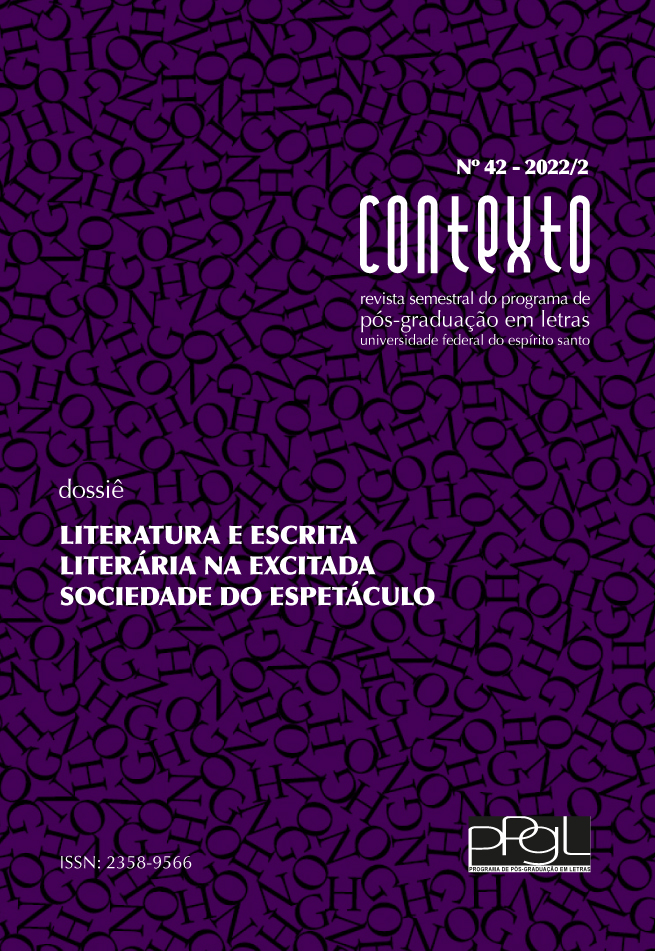Sátira romana: discutindo o gênero
DOI:
https://doi.org/10.47456/contexto.v1i42.35108Abstract
This paper aims at discussing a possible boundary for Roman satire’s genre borderlines. Bearing the impossibility of a rigid definition of satire in mind, we build upon an understanding of the satirical attitude as a means of human expression that goes beyond the genre. In this paper, we also discuss the etymological origin of the term satura, which ends up reinforcing a key feature of satire: its variety. We pursue a definition of the genre in Antiquity that is flexible enough to encompass the variations one can observe in the works of authors who have practiced it after Lucilius. In accordance with Knight (2004), who advocates for the good repercussion of discussions about satire based on metaphorical definitions, we derive from the theories developed by Hansen (2011), Rudd (1986) and Kernan (1959). We perceive satire as a moving genre, which does not fit in a fixed point nor is in such a way so variable that there can be no discussion on its patterns: much on the contrary, it ranges between boundaries that can be well observed.
KEYWORDS: Hexametric Roman satire. Menippean satire. Gaius Lucilius. Quintus Horatius Flaccus
Downloads
Downloads
Published
Versions
- 31-12-2022 (2)
- 22-12-2022 (1)
Issue
Section
License
Copyright (c) 2022 Marihá Barbosa e Castro

This work is licensed under a Creative Commons Attribution-NonCommercial 4.0 International License.

Este obra está licenciado com uma Licença Creative Commons Atribuição-NãoComercial 4.0 Internacional.





